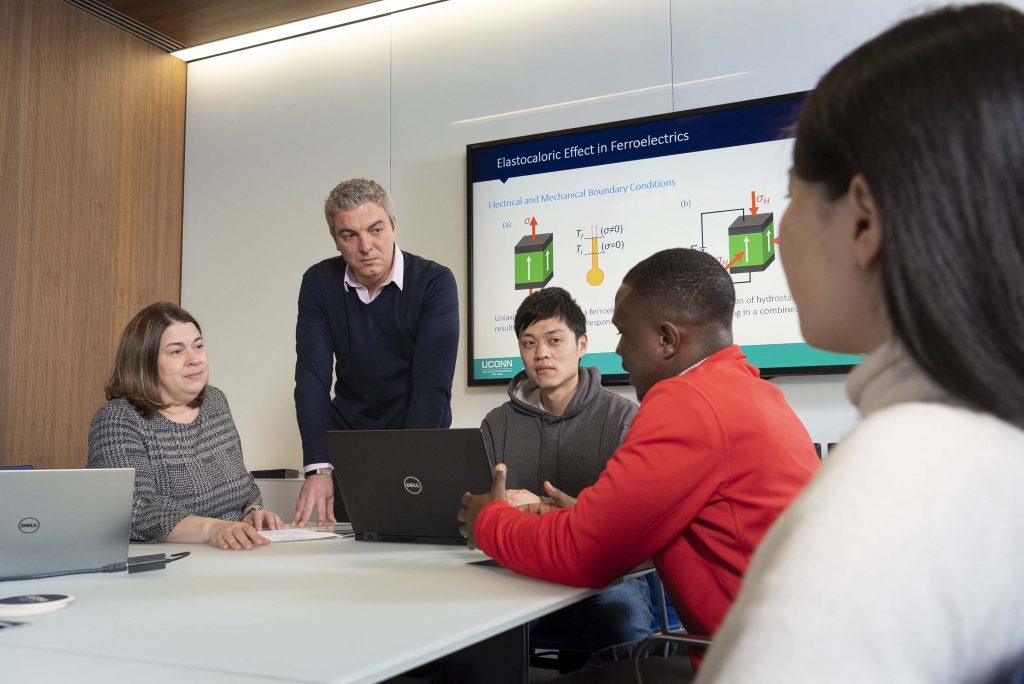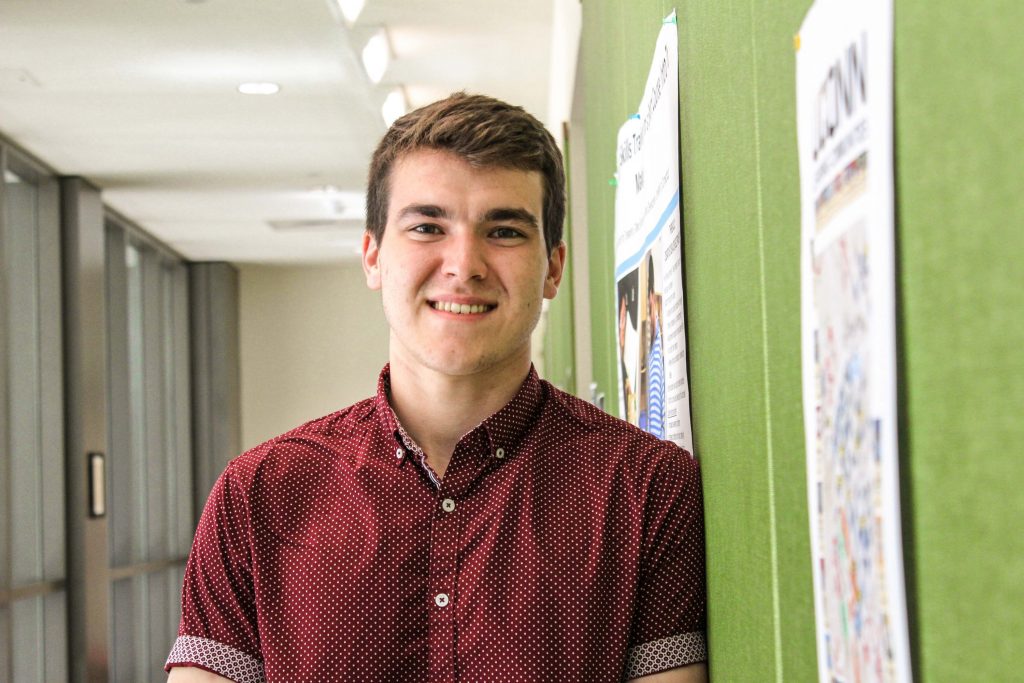
Executive Director, Office of Communications
Jessica McBride, PhD
Dr. Jessica McBride is the Executive Director of the Office of Communications at UConn's College of Agriculture, Health and Natural Resources. She is responsible for developing and implementing communications and marketing strategies to highlight the College's unique research strengths, outstanding academic offerings, and extensive community impact. An alum, Jessica earned her Ph.D. from UConn in 2017.
Author Archive
Student-run Podcast Brings Research to Life
A team of UConn students launched the In Vivo podcast to to get to know the fascinating faculty, staff, and students who give UConn life.
October 3, 2019 | Anna Zarra Aldrich '20 (CLAS), Office of the Vice President for Research
Meet the Researcher: George Bollas, UConn Tech Park
Led by George Bollas, the United Technologies Corporation Institute for Advanced Systems Engineering (UTC-IASE) has been solving these real-world problems for industry since 2013.
October 2, 2019 | Anna Zarra Aldrich '20 (CLAS), Office of the Vice President for Research
Meet the Researcher: Chelsea Garcia ’20, Nutritional Sciences
“I want to continue to do research and relay those findings to the public with the hopes of having a positive impact,” says Chelsea Garcia '20 (CAHNR).
September 25, 2019 | Anna Zarra Aldrich '20 (CLAS), Office of the Vice President for Research
UConn Partners in $100M DOE Innovation Hub on Water Technologies
A research consortium including the University of Connecticut has been awarded a five-year, $100-million Energy-Water Desalination Hub to address water security issues in the United States.
September 25, 2019 | Jessica McBride, PhD
Ultrafine Particles, Big Health Problem
UConn Health researcher Douglas Brugge has received a $2.5M grant from the National Institute of Environmental Health Sciences for the first intervention on in-home ultrafine particle pollution.
September 24, 2019 | Anna Zarra Aldrich '20 (CLAS), Office of the Vice President for Research
CT Sea Grant Leads National Aquaculture Projects
Connecticut Sea Grant will lead two major new aquaculture initiatives and be a key contributor to two additional projects in the National Sea Grant’s $16 million award program for collaborative aquaculture projects. The awards, announced by National Sea Grant last week, will fund 42 research projects nationwide aimed at advancing sustainable aquaculture in the United […]
September 23, 2019 | Judy Benson, Connecticut Sea Grant
Driving Innovation: Mitchell Hornak ’22
At UConn, the sophomore has already won the Innovation Quest (iQ) award for an automated opioid dispenser designed to help prevent patients from overdosing.
September 20, 2019 | Anna Zarra Aldrich '20 (CLAS), Office of the Vice President for Research
New Grant Helps Manage Pain and the Opioid Crisis
A research team from the Connecticut Convergence Institute for Translation in Regenerative Engineering has received $1.8 million from the NIH to work towards the development of a non-opioid treatment for acute pain flare-ups.
September 16, 2019 | Anna Zarra Aldrich '20 (CLAS), Office of the Vice President for Research
START Preliminary Proof of Concept Fund Recipients
Through a generous grant from the CTNext Higher Education Fund last year, the Office of the Vice President for Research (OVPR) has been administering an early stage translational research funding program called the START Preliminary Proof of Concept Fund. Under the grant, funding is provided to investigators at Central Connecticut State University, Southern Connecticut State […]
September 13, 2019 | Jessica McBride, PhD
Making Digital Scholarship Mainstream
UConn’s Greenhouse Studios aims to reimagine disrupt longstanding academic workflows to better support scholarly publications for the digital age.
September 11, 2019 | Jessica McBride, PhD









